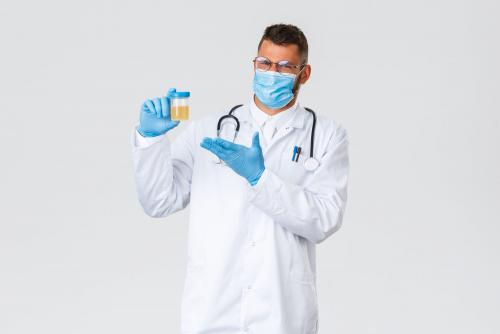Understanding Drug Tests: Types, Processes, and What to Expect!
Drug testing has become a common practice in various settings, including employment, legal situations, and sports. Its primary goal is to detect the presence of illegal or prescription drugs in an individual's system. Understanding the different types of drug tests, how they work, and what to expect during the process can help alleviate some of the anxiety associated with these tests.
This comprehensive guide will cover the basics of urine, blood, hair, and saliva drug tests, offering insights into each method's workings and what individuals can anticipate when undergoing drug testing.
Types of Drug Tests
1. Urine Drug Tests
Urine testing is the most common form of drug testing due to its simplicity, efficiency, and cost-effectiveness. It can detect a wide range of substances, including marijuana, cocaine, opiates, and amphetamines. The process involves collecting a small sample of urine in a sterile container, which is then analyzed in a lab to identify the presence of drug metabolites – substances produced when the body metabolizes drugs.
What to Expect:
• Collection Process: You will be asked to provide a urine sample in a designated testing area. Privacy is usually respected, but in some cases, a same-gender administrator may supervise to ensure the integrity of the sample.
• Results Timeline: Initial results can be available within a few hours to a day, but confirmatory testing may take longer.
2. Blood Drug Tests
Blood tests are the most accurate form of drug testing, capable of measuring the actual amount of drugs in the bloodstream at the time of the test. They are often used in legal and medical settings but are less common for employment screening due to their invasiveness and higher cost.
What to Expect:
• Collection Process: A trained healthcare professional will draw a blood sample from your arm using a needle. The procedure is quick and usually takes only a few minutes.
• Results Timeline: Results can take anywhere from a few days to a week, depending on the complexity of the analysis required.
3. Hair Drug Tests
Hair drug testing offers the longest detection window, as drugs can be detected in hair for up to 90 days after use. This test analyzes the drug molecules embedded in the hair shaft, providing a more extended history of drug use than other testing methods.
What to Expect:
• Collection Process: A small sample of hair, usually from the back of the head, is cut close to the scalp. If head hair is unavailable, body hair may be used instead.
• Results Timeline: Results typically take longer to process than urine or blood tests, usually around several days to a week.
4. Saliva Drug Tests
Saliva (oral fluid) testing is a less invasive method for detecting recent drug use. It is increasingly popular for roadside testing by law enforcement and for employment screening due to its convenience and the ability to conduct the test almost anywhere.
What to Expect:
• Collection Process: A swab is placed in your mouth to collect saliva. The process is quick, non-invasive, and can be done without medical personnel.
• Results Timeline: Initial results can be available within minutes, making it an excellent option for quick screenings.
Preparing for a Drug Test
Regardless of the type of test, there are a few general preparations you can make:
• Identification: Bring a valid ID to the testing center.
• Medication and Supplements: Inform the administrator about any prescription drugs, over-the-counter medications, or supplements you are taking, as these can sometimes affect test results.
• Stay Hydrated: Drink plenty of water before the test, especially for urine tests, to ensure you can provide a sample.
Conclusion
Drug testing can seem daunting, but understanding the different types of tests, how they work, and what to expect can make the experience less stressful. Whether you're undergoing testing for employment, legal reasons, or sports, knowing the processes involved helps you prepare adequately and approach the test with confidence. Remember, the purpose of drug testing is to ensure safety and compliance within various environments, and being informed is your best tool in navigating these tests successfully.





Comments